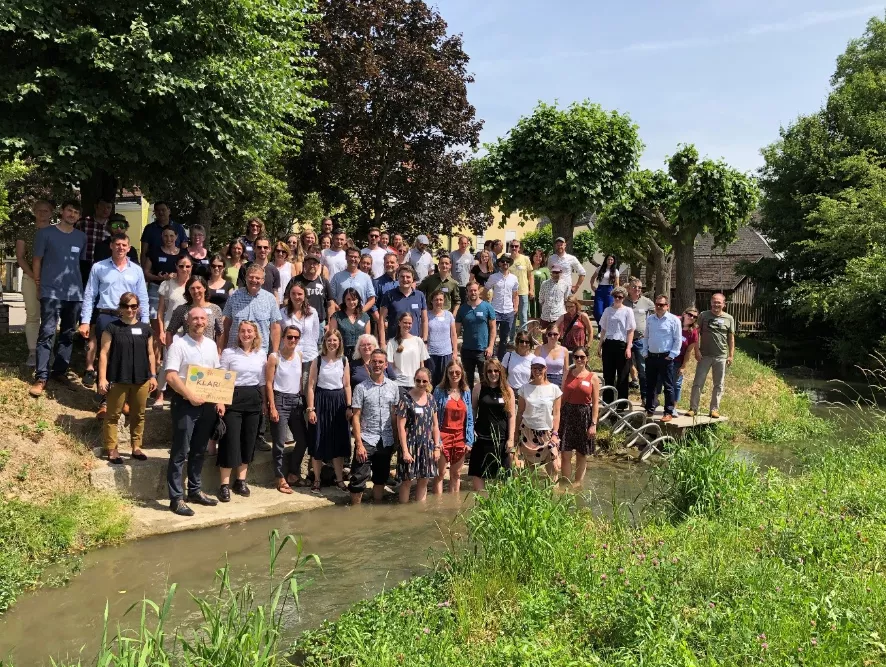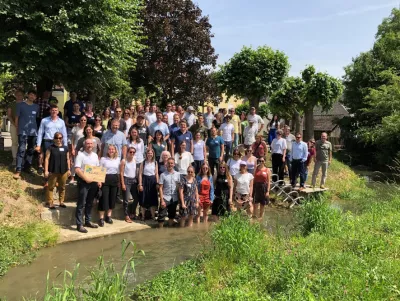Summary
The Climate and Energy Model Regions (KEM) and the Climate Change Adaptation Model Regions (KLAR!) programmes support Austrian municipalities and regions in the provincial capital and in rural areas across the country to achieve climate targets. Both programmes follow a bottom-up approach and require municipalities to contribute 25% of their own resources. The programme support ranges from concept development and implementation measures, to concrete investments in the energy and mobility transition, as well as climate change adaptation.
KEM and KLAR! have achieved success through the integration of local stakeholders, continuous education, and strong regional management. Together, the KEM and KLAR! programmes have led to the establishment of 126 Climate and Energy Model Regions and 87 Climate Change Adaptation Model Regions, respectively, involving a total of nearly 1 900 municipalities and implementing over 8 500 projects.
Results
The KEM programme has successfully promoted cooperation among municipalities, resulting in over 7 000 projects by 2024, in areas such as renewable energy, energy efficiency, sustainable mobility, and capacity building. Examples of projects include photovoltaic offensive and car-sharing models.
The KLAR! programme has resulted in over 1 500 projects to date. These projects address heat protection, protection from natural hazards, restoration of ecosystems, and awareness-raising, focusing on aspects such as safety measures and climate-fit school renovations.
The programmes have gained momentum in Austria, as demonstrated by the high number of projects and participation of key stakeholders.
- KEM counts 126 Climate and Energy Model Regions, including four focus regions (two in tourism, one in bioeconomy, and one in decarbonisation of the heat sector). Combined, the regions cover 1 157 municipalities inhabited by about 3.43 million residents.
- KLAR! involves 87 Climate Change Adaptation Model Regions covering 741 municipalities and 2.13 million inhabitants.
Resources
Documents
Context
The Climate and Energy Fund, established in 2007 by the Austrian Federal Government, launched the KEM programme in 2009. The programme supports Austrian municipalities and regions aiming to reduce their reliance on fossil fuels by leveraging local resources and investing in a combination of renewable energy, enhanced energy efficiency, and smart controls. KEM plays a central role in creating structures for climate-friendly living through targeted expansion of renewable energies, optimisation of energy use, resource conservation, and implementation of sustainable mobility projects.
The KLAR! programme was launched in 2016 to enable municipalities and regions to prepare for climate change by minimising negative impacts and capitalising on new opportunities.
Objectives
-
Support the achievement of the EU's climate and energy targets;
-
Assist municipalities with specific measures and implementation projects to reduce greenhouse gas emissions and adapt to climate change;
-
Support regions to become information hubs (one-stop shops) for climate protection and adaptation;
-
Provide subsidies to municipalities, businesses and residents within the region;
-
Expand and consolidate suitable structures for regional climate protection and climate change adaptation.
Activities, key actors, and timeline
Regional managers play a key role within the two programmes on the ground. They initiate and organise projects, thereby relieving the burden on municipal administration staff and acting as experts in climate protection and adaptation.
Programme activities include regular coordination with LEADER regions and coordinated interaction between KEM and KLAR! to achieve synergies.
The programmes are divided into three phases:
-
Phase 1 – Conception: development of an implementation concept and bottom-up measures with predefined requirements involving essential stakeholders. A regional manager is assigned.
-
Phase 2 – Implementation: over a two-year period, the regional manager, in cooperation with local stakeholders, implements the bottom-up measures defined in the conception phase.
-
Phase 3 – Continuation: the model region manager implements six to ten additional bottom-up measures. There are additional options for supporting the regions with exclusive investment grants for projects.
Success factors/lessons learnt
Successful programme implementation replies on four factors:
1) An implementation concept to: overview the status quo; set goals and benchmarks; identify possibilities; and set out concrete actions. It is important to delimit a region’s size – a maximum number of 60 000 inhabitants has proven to be ideal.
2) A driving force on location: regional managers drive project implementation in line with the action plan and act as a main contact point for stakeholders in the region, ensuring coordination and engagement.
3) Integration of the region into the development process: the programmes raise awareness of the projects and anchor regional development in cooperation with local businesses, policymakers, citizens and other stakeholders. Co-financing by local communities is a key element of this process.
4) Networking and training: Austrian model region managers meet for a two-day training and networking three times per year to exchange know-how, a key characteristic of the network.
Overall, KEM and KLAR! have achieved success through the integration of local stakeholders, continuous education, and strong regional management. The programmes' success hinges on tailored solutions to local challenges, active involvement of the community, a robust network of managers and experts, and regular training sessions for the KEM and KLAR! managers.

